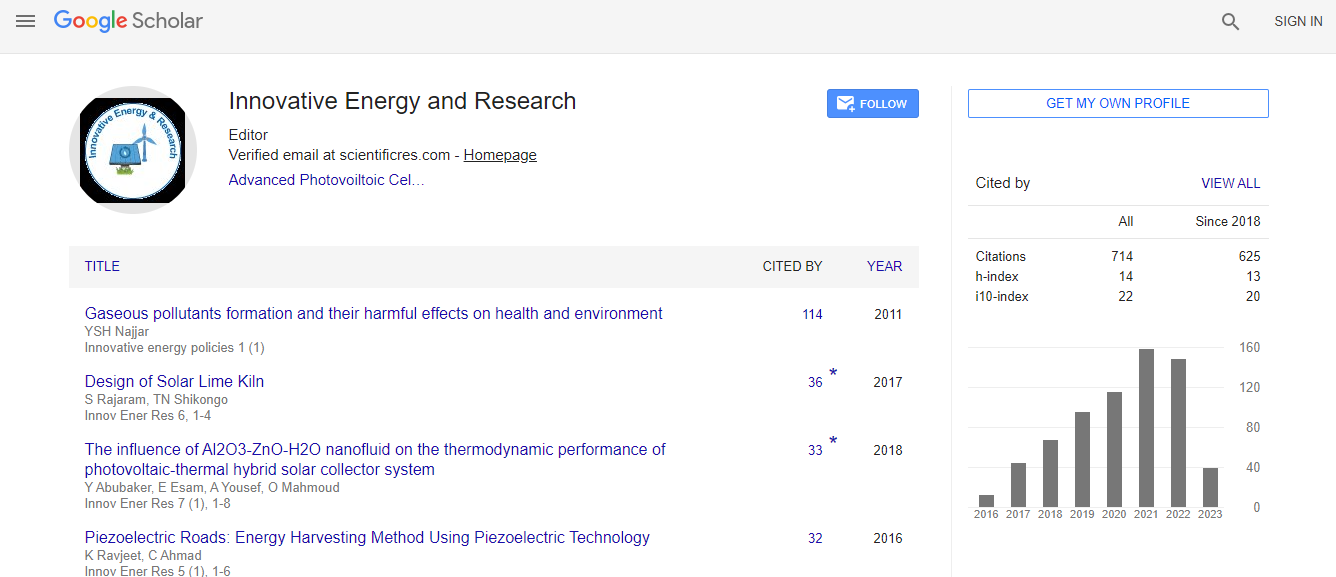Our Group organises 3000+ Global Events every year across USA, Europe & Asia with support from 1000 more scientific Societies and Publishes 700+ ������ Journals which contains over 50000 eminent personalities, reputed scientists as editorial board members.
������ Journals gaining more Readers and Citations
700 Journals and 15,000,000 Readers Each Journal is getting 25,000+ Readers
Citations : 712
Indexed In
- Google Scholar
- Open J Gate
- Genamics JournalSeek
- RefSeek
- Hamdard University
- EBSCO A-Z
- Publons
- Euro Pub
- ICMJE
Useful Links
Recommended Journals
Related Subjects
Share This Page
Spatial agent-based modeling for dedicated energy crop adoption and cellulosic biofuel commercialization
Joint Event on 2nd International Conference on Renewable Energy and Resources & Energy Materials and Fuel Cell Research
Enze Jin and John W Sutherland
Purdue University, USA
ScientificTracks Abstracts: Innov Ener Res
DOI:
Abstract
Dedicated bioenergy crops, such as perennial grass and short rotation trees, are qualified as cellulosic biofuel feedstocks to meet the requirement for advanced biofuel in the expanded Renewable Fuel Standard. The utilization of dedicated energy crops for cellulosic biofuels is still in the early stage or pilot scale, and the existing cellulosic biorefineries are yet to be commercialized. This study develops an agent-based model to simulate the spatial diffusion of switchgrass (Panicum virgatum L.) adoption in Indiana cropland from 2015 to 2027 under various biofuel market scenarios. Results indicate that it is only economically viable to produce 1,115 million gallons (4220.7 million liters) cellulosic ethanol from switchgrass annually in Indiana from 2015 to 2023 given an average annual farm gate price of $123.93 t-1 for feedstock. This study also finds that the high productivity of switchgrass can increase farmers’ adoption rates and secure a stable feedstock supply. Moreover, it reveals that the high equipment costs required for scaling up production capacity and the highly variable operating cost of cellulosic biofuel production will inhibit the viability of commercializing cellulosic biofuels with a stable supply of feedstock. Financial incentives for cellulosic biofuel production have a significant impact on promoting the adoption of dedicated energy crops in Indiana. This paper provides useful insights for biorefinery inventors and policymakers to facilitate the commercialization of cellulosic biofuels by understanding the effects of farmers’ decisions on the adoption of dedicated energy crops.Biography
Enze Jin is a PhD candidate in Environmental and Ecological Engineering in Purdue University. He has a Master degree of Biosystems and Agricultural Engineering from Oklahoma State University and a bachelor degree of Mechanical Engineering from China Agricultural University. His research focuses on the sustainability assessment of bioenergy systems in terms of environmental, economic, and social impacts.
E-mail: ejin@purdue.edu

